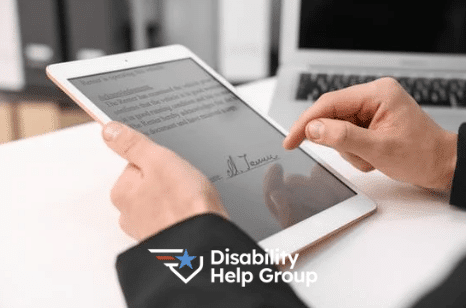Getting Social Security Disability for Asperger’s Syndrome
Whether a person qualifies for Social Security disability (SSDI) for Asperger’s syndrome depends on the severity of the condition and how it impacts the applicant’s ability to earn a living. Any medical condition can form the basis for an SSDI claim if the applicant can show that the condition prevents them from engaging in substantial gainful activity (SGA) for at least a year.
Here’s what you need to know about Asperger’s syndrome, when it may qualify a person for SSDI benefits, and what type of documentation is typically required to prove your claim. Keep in mind that this information is not a substitute for personalized advice and guidance from an experienced disability benefits advocate. If you have questions about claiming Social Security disability for Asperger’s or you’re ready to file a claim, call us at 800-800-3332 to schedule a free consultation.
Asperger’s Syndrome and the Autism Spectrum
Though many people have a pre-existing diagnosis of Asperger’s syndrome, that is no longer an official diagnosis. The Diagnostic and Statistical Manual of Mental Disorders (DSM-5), published in 2013, eliminated the diagnosis and instead treats the condition formerly known as Asperger’s syndrome as part of the autism spectrum. Those who were previously diagnosed with Asperger’s syndrome or who were diagnosed later now fall into the category of Level 1 autism.
Symptoms of Asperger’s Syndrome/Level 1 Autism
Level 1 autism is the mildest form of autism. It was originally classified separately, as Asperger’s syndrome, because the language and cognitive delays that are common to move severe forms of autism are generally absent. In fact, people with Asperger’s/Level 1 autism tend to have higher-than-average language skills and cognitive processing.
Common symptoms of Level 1 autism include:
- Difficulty initiating or responding to social engagement
- Difficulty switching between activities
- Inflexible thinking
- Difficulty with organization and planning
The current DSM manual characterizes this level as “requiring support.” Whether that means a person is unable to work for a living depends on the specifics of the condition and whether the person has additional medical or other types of limitations.
SSDI for Asperger’s Syndrome
As with other medical conditions, there are two possible paths to approval of SSDI benefits. The first is to meet or equal a listing in the Social Security Blue Book. The second is a more holistic evaluation that considers factors outside your medical condition.
Disability Benefits for Autism Spectrum Disorder Under the Blue Book
A worker seeking SSDI for Asperger’s syndrome/Level 1 autism will be evaluated under section 12.10 of the Social Security Blue Book. The same listing criteria are applied to all autism spectrum disorder claims.
To qualify for disability under the Blue Book listing, the applicant must fulfill two separate sets of criteria. First, they must provide medical documentation of BOTH of the following:
- Qualitative deficits in verbal communication nonverbal communication and social interaction, AND
- Significantly restricted, repetitive patterns of behavior, interests or activities
The applicant must ALSO show either extreme limitation in one of the areas listed below or marked limitation in two:
- Understanding, remembering and applying information
- Interacting with others
- Concentrating, persisting or maintaining pace
- Adapting or managing themself
Can You Get Disability for Asperger’s If You Don’t Meet the Blue Book Listing?
An applicant who doesn’t meet all of the Blue Book criteria may still qualify for disability benefits. If you don’t qualify under the Blue Book analysis, the Social Security Administration (SSA) will automatically go on to evaluate your claim in a different way.
This analysis considers physical and mental limitations, pain, and other medical factors that may impact your ability to do work. The SSA then considers two questions:
- Are you able to do work you have done in the past?
Because the SSA is looking for work you can do now, this analysis doesn’t take into account every job you’ve ever held. Instead, it is focused on recent work and work you performed for a long time.
If the SSA determines that you are able to do work you’ve done in the past, you will not be considered disabled and your claim will be denied. If they find that you are not able to do work you’ve done in the past, the process moves to the next step.
- Are you able to do other work?
In answering this question, the SSA considers several factors, including:
- Your age
- Your educational level
- The type of work you have done in the past
- Whether you have transferrable skills
The SSA uses a grid that combines all of these factors to determine whether or not you are disabled. There are different grids for different levels of residual functional capacity.
Applying for SSDI for Asperger’s Syndrome
The symptoms of Asperger’s syndrome/Level 1 autism aren’t the type that lend themselves well to objective testing. An SSDI applicant won’t be able to produce a scan or blood test that proves the severity of their Asperger’s symptoms, or even that they have the condition. That means consistent records from one or more well-qualified medical providers will be crucial to establish your claim.
This type of claim is often less clear-cut than a claim for a measurable physical impairment, and unfortunately that means that many claims are initially denied. At Disability Help Group, our experienced advocates know what type of documentation is necessary to prove an autism spectrum claim, and how to assemble that documentation. We’ll work with you to put together the strongest application and package of evidence possible, to maximize your chances of approval.
If you’ve already applied and been denied, we can help with that, too. But your time is limited. You have just 60 days from a denial to move your case to the next stage. If you miss that deadline and have to start over, you could lose out on back benefits. You’ll want to contact us immediately after receiving a denial so we can assess the reasons for the denial and assemble the necessary documentation.
To schedule your free consultation, call 800-800-3332 right now, or fill out our contact form here.







